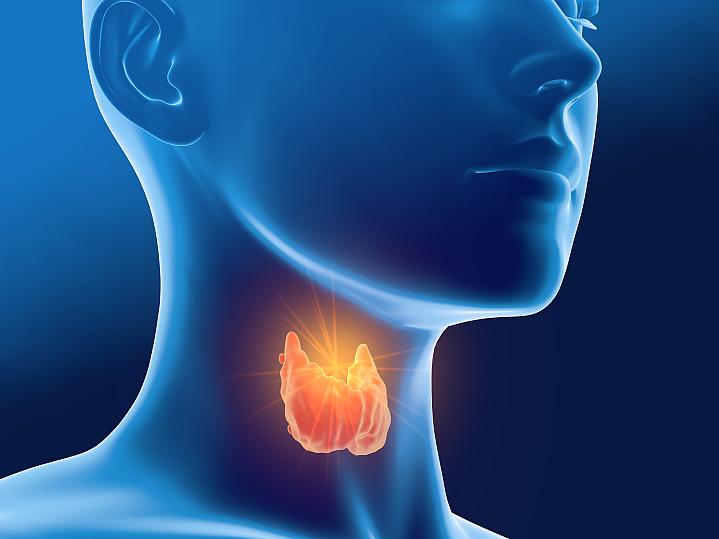Health Capsule
Thyroid Problems?
 Axel_Kock / Shutterstock.com
Axel_Kock / Shutterstock.comYour thyroid is a small gland in the front of your neck. It releases hormones that control how your body uses energy. These keep your organs running properly. But some people’s thyroids can be underactive or overactive and cause health problems.
When your thyroid doesn’t produce enough hormones to meet your body’s needs, it’s called hypothyroidism. This condition affects about 5 in 100 people age 12 and older. Most cases are mild or have few obvious symptoms. But hypothyroidism can cause you to feel tired and gain weight. You may also feel cold and have a slowed heart rate.
An overactive thyroid, or hyperthyroidism, is less common. It affects about 1 in 100 people age 12 and older. This condition can cause weight loss despite an increased appetite and a rapid or irregular heartbeat. Hyperthyroidism can cause you to be nervous or irritable. You may have trouble sleeping. Left untreated, it can lead to heart problems.
Your doctor can diagnose a thyroid problem based on your symptoms and on blood tests. These tests measure levels of thyroid stimulating hormone, or TSH, and may include thyroid antibody tests. Antibody tests can reveal whether your thyroid problem is caused by an autoimmune condition, in which your immune system attacks the thyroid.
Thyroid problems are more common in women and people older than 60. Talk with your doctor if you think you may have thyroid problems. Learn more.
NIH Office of Communications and Public Liaison
Building 31, Room 5B52
Bethesda, MD 20892-2094
nihnewsinhealth@od.nih.gov
Tel: 301-451-8224
Editor: Harrison Wein, Ph.D.
Managing Editor: Tianna Hicklin, Ph.D.
Illustrator: Alan Defibaugh
Attention Editors: Reprint our articles and illustrations in your own publication. Our material is not copyrighted. Please acknowledge NIH News in Health as the source and send us a copy.
For more consumer health news and information, visit health.nih.gov.
For wellness toolkits, visit www.nih.gov/wellnesstoolkits.
